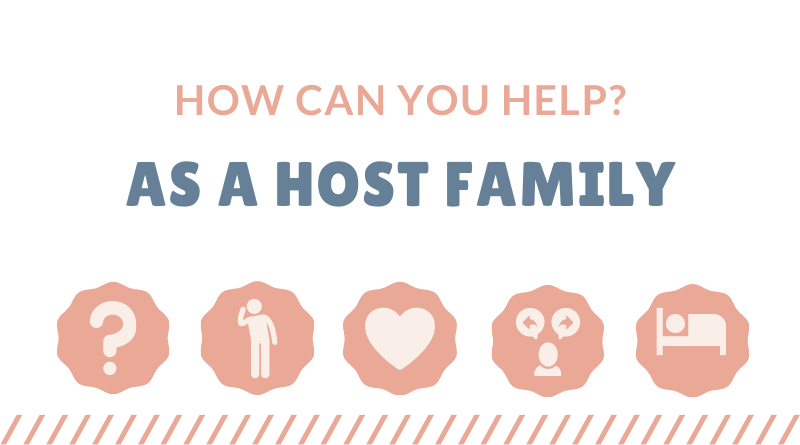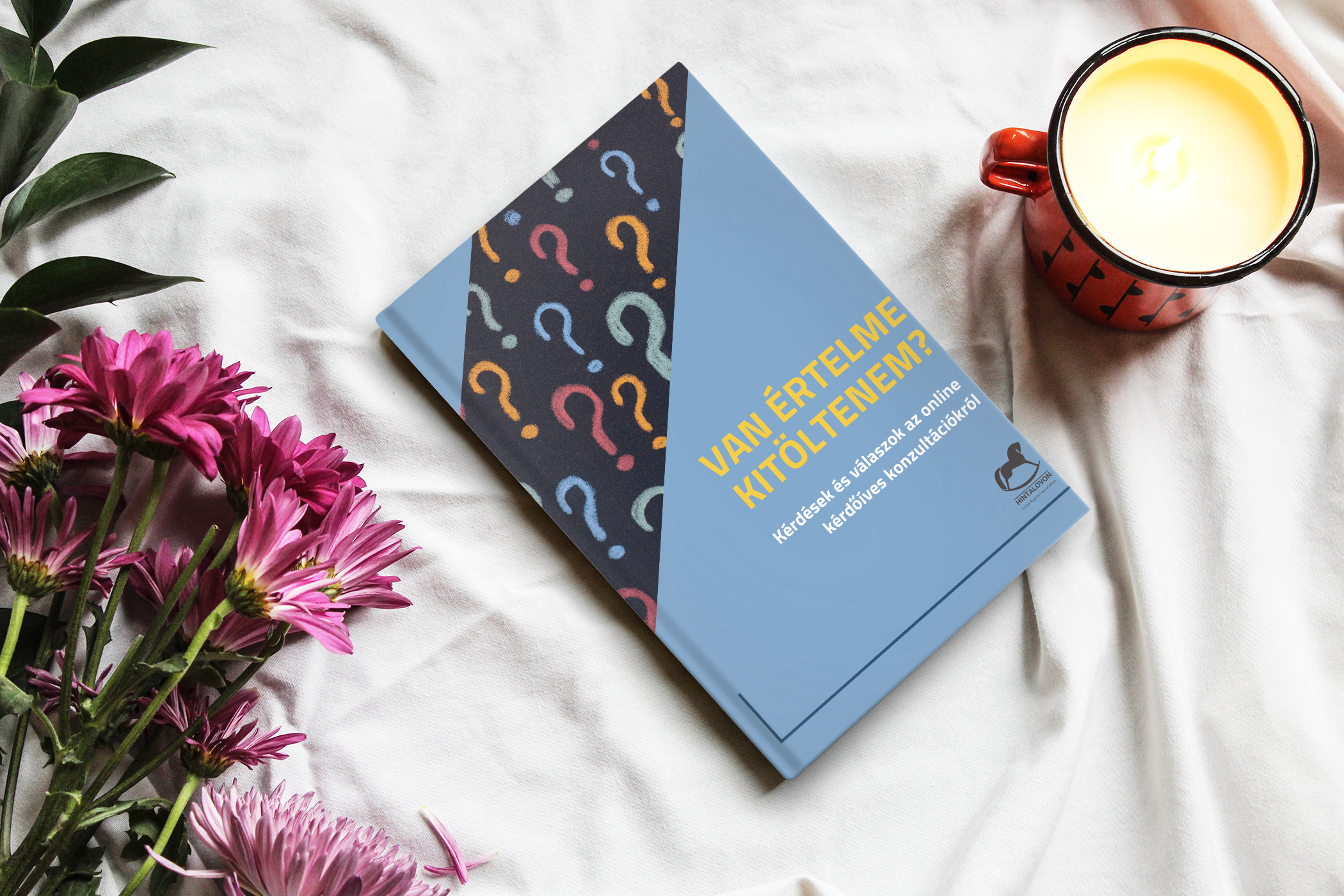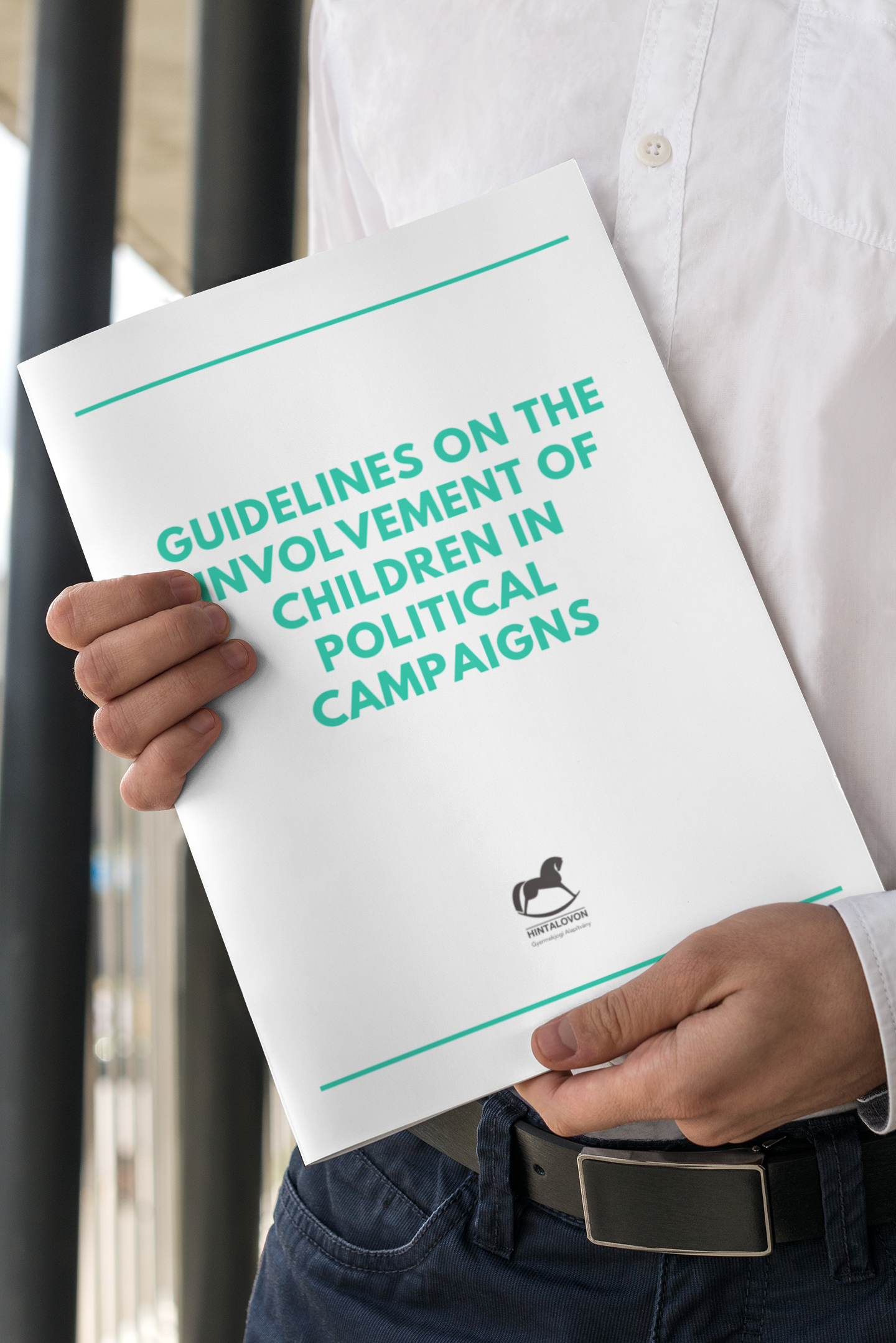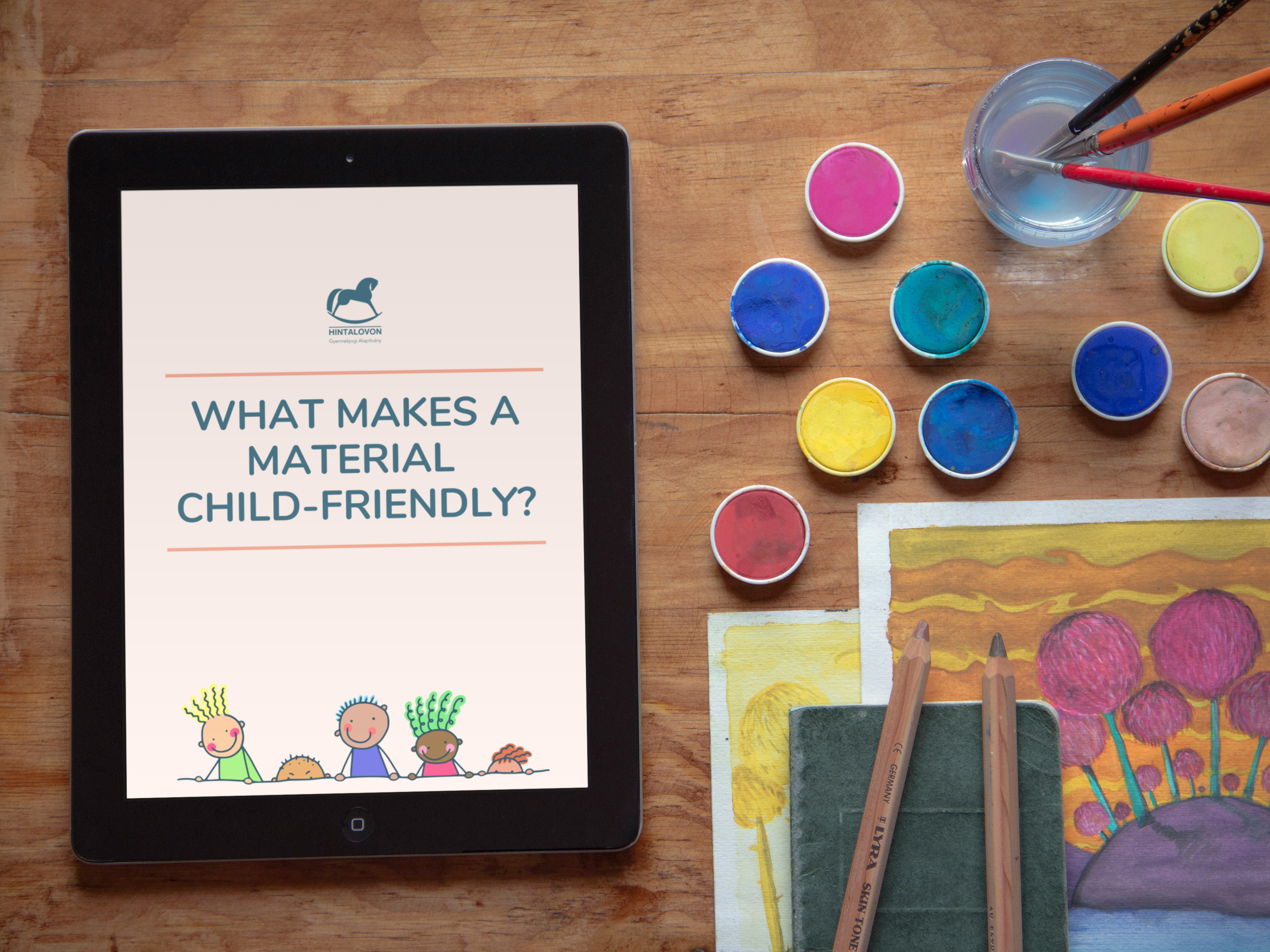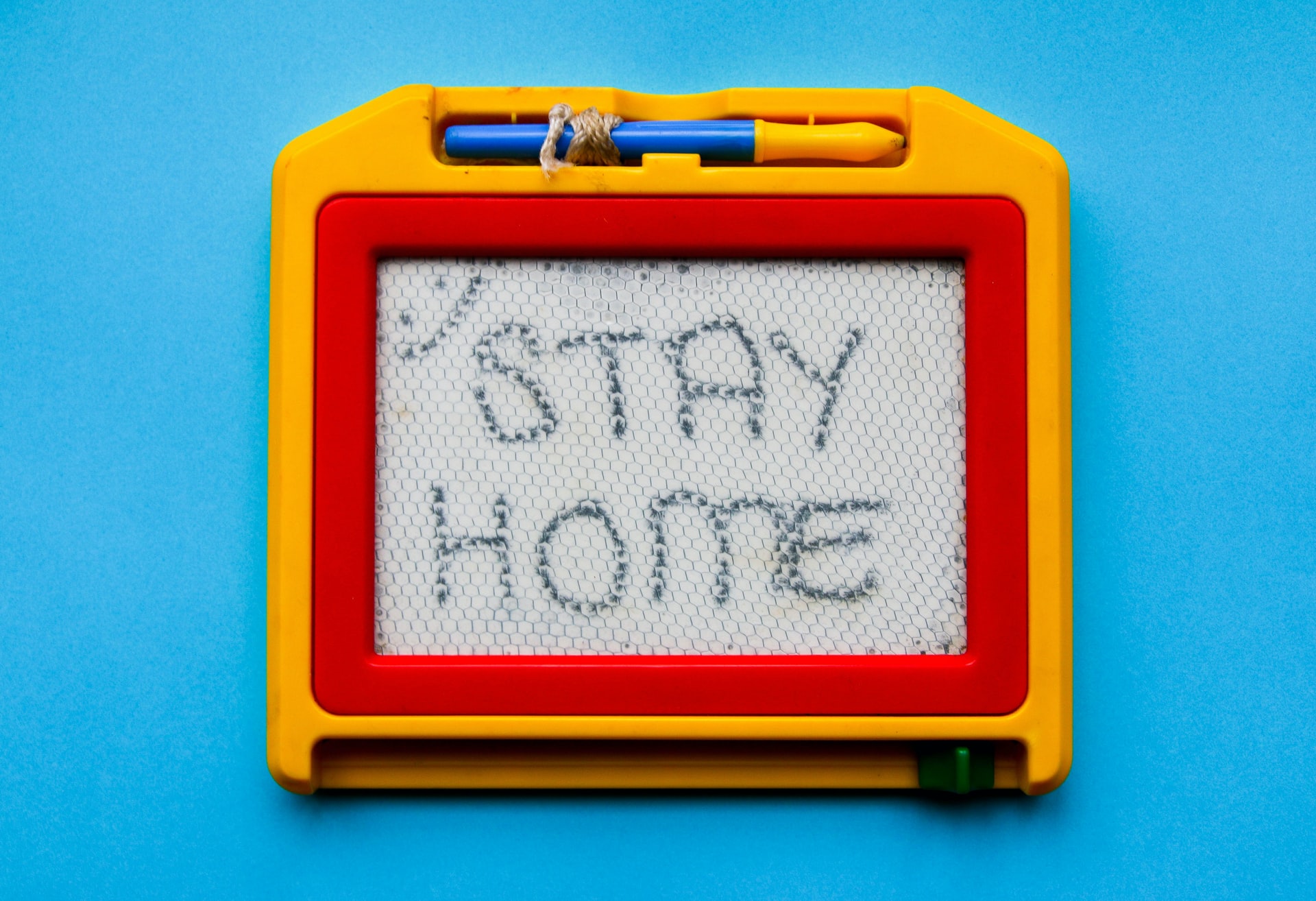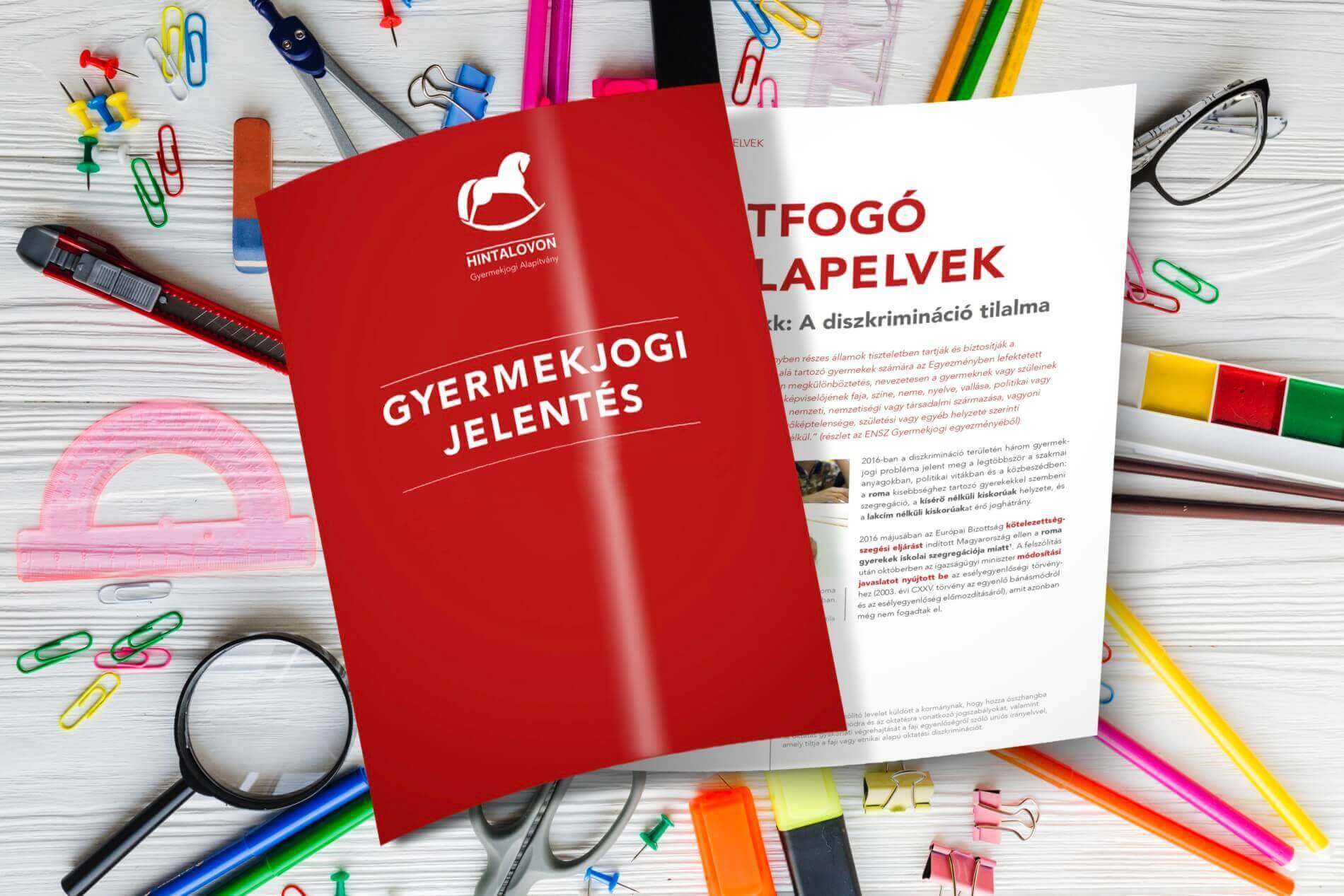How can you help? What should you consider as a host in this crisis? How can you best support refugee families in this situation? What should be discussed with children in the host family?
The current state of war is a crisis.
But what is a crisis?
Crisis is an unexpected, psychologically critical situation that cannot be avoided, thus it must be faced. It is the upset of a previous state of equilibrium in which a lot of emotions appear, such as failure, anxiety, panic, helplessness, or vulnerability. In crisis, people are psychologically constricted, i.e. their thoughts can only revolve around certain events, may experience panic or paralysis and might even lose control.
The current situation is a crisis for refugees, in which they are experiencing a huge loss, whether it is their sense of security, material possessions, human relationships or faith in a just world.
What do refugees need?
Refugees’ primary need in this situation is to feel safe. The first step to achieve this is to meet their basic needs – to provide them with food, drink and possibility to have a shower and rest.
Perhaps the most difficult thing in crisis is that people lose control of their situation. Help them regain control. Let everything happen at a pace that suits them best, for example, let them eat and talk to you whenever and as much as they want to.
You can also help them regain control and security by providing information. First show them around in your home, and when they’ve had enough of rest and are ready, guide them around your neighbourhood, showing them the shops, churches, playgrounds and parks.
Be prepared with practical information they may need, such as where they can get medical or any other type of help.
Coping tips in Hungarian for people helping refugees fleeing from war
What to consider when hosting refugees in your family?
Refugees are currently feeling vulnerable, so they may have the feeling that you are doing them a favour by providing them with a temporary home. In this situation, they are likely to feel they have to fit you and meet your expectations, for example, by answering your questions even if they do not want to, play with your kids even when they are exhausted or want to be on their own.
Of course, it might also be the case that they specifically want to talk about the attacks they had, their escape, or different thoughts and feelings associated with these. It is important to be aware that everyone’s needs are different. What would mean help to you may not be help to all families.
You are making a very important and special contribution by hosting refugees in your home. It is crucial that you also help them by providing safety and information in this confusing and difficult situation. However, it is also important that you are able “to stay in the background”: let this situation be about them. Give them a chance to talk (for example, “I’m here if you want to talk about it”), but don’t ask them questions. Conversations should be about their needs (for example, talking about their experiences), but not about you (for example, getting information about the war).
Be supportive but remember: the family members of the refugee family mean real security to each other.
Children in the host family – how should you talk to them?
If there are children in the host family, it is important to talk to them before receiving the refugee family. Listen to their opinions and thoughts in a calm, relaxed environment. Talk about the war taking into consideration their age and interest (link). Also talk about what the people you are hosting are experiencing and what their needs might be in this situation. But even while hosting the family, make sure you provide children with the opportunity and time to share any bad feelings they might have and let them ask questions.
And of course, ensure to make them understand that they are also helping a lot by hosting the family in their homes sharing their every days, toys and rooms with them.
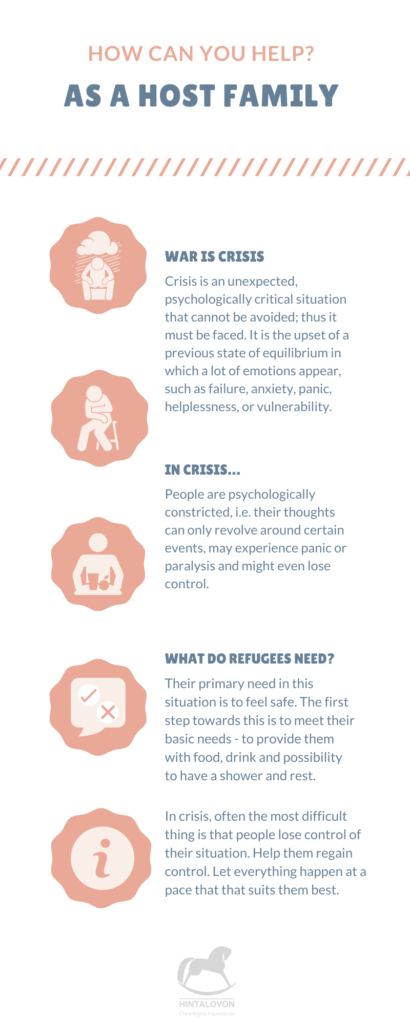
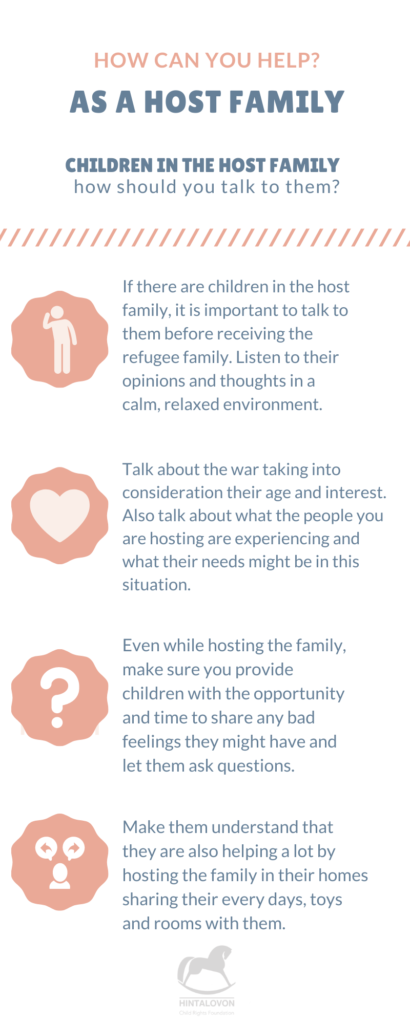
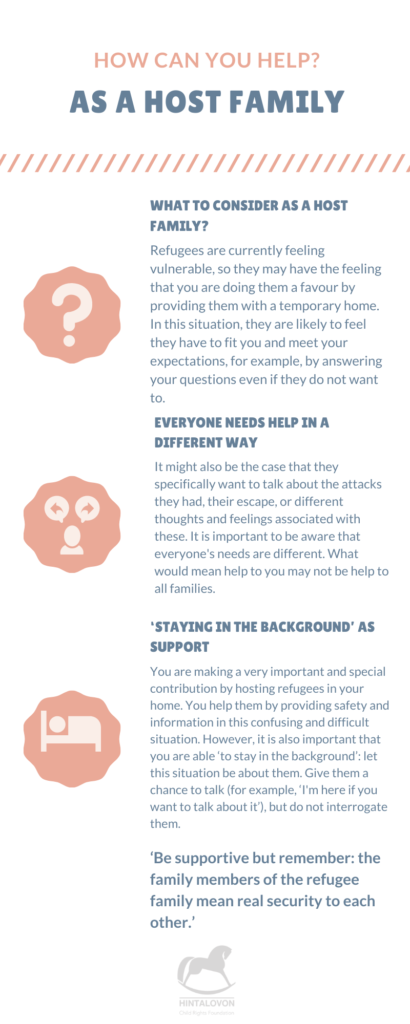
You can download the infographics here.
